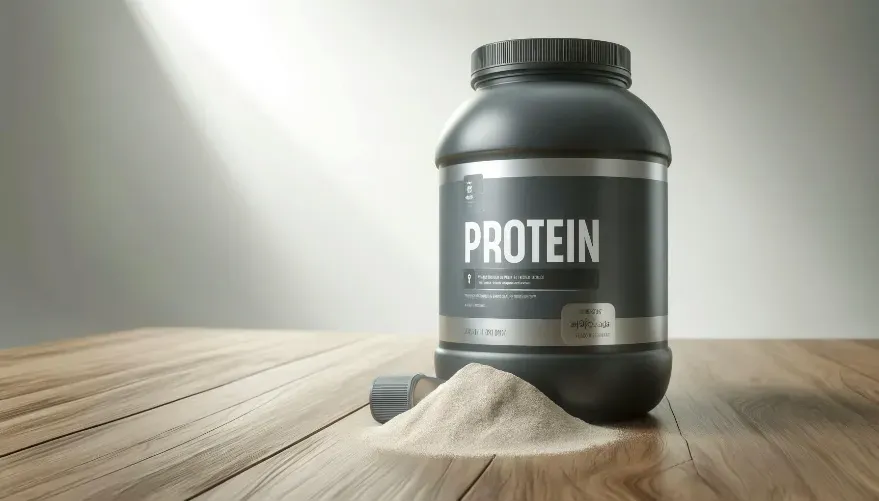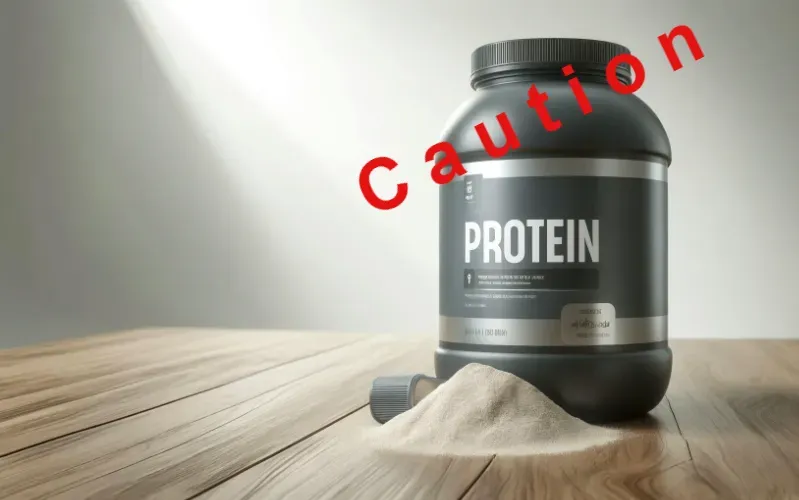Unlock the Power of Protein: How Protein Powders Propel Your Health and Fitness

Protein powders have risen from a niche market to become a staple in the nutritional regimens of health enthusiasts worldwide. Packed with essential nutrients, they offer a host of benefits to support a variety of health and fitness goals. The incorporation of these supplements can be a game-changer, especially for those striving for an optimized lifestyle where nutrition plays a pivotal role.
As we delve into the world of protein supplements, you'll discover why so many have embraced these potent powders, transforming their dietary habits and, consequently, their overall well-being.
What are Protein Powders?

At its core, protein powder is a supplementary form of protein derived from various food sources. Its primary purpose is to provide a concentrated dose of this essential macronutrient, which is crucial for building and repairing tissues, making enzymes and hormones, and supporting overall health.
For those whose lifestyles involve higher-than-average physical demands, or for individuals aiming to streamline their protein intake, these powders serve as a practical solution. They bridge the nutritional gap that can sometimes be left by our daily food consumption.
Types of Protein Powders
Exploring the spectrum of protein powders, we find options like whey, a byproduct of cheese production revered for its high biological value and rapid absorption. Soy protein caters to those seeking a plant-based source, offering a complete amino acid profile. Casein, another dairy-derived supplement, releases amino acids slowly, making it ideal for sustained protein delivery, especially during fasting periods such as sleep.
For those preferring alternatives to animal-based products, plant-based proteins from peas, hemp, and rice, among others, are gaining popularity. Each variety carries its unique profile of amino acids and rates of digestibility, allowing for personalized dietary supplementation.
Key Health Benefits of Protein Powders
The strategic inclusion of protein powders into one's diet unfolds an array of health benefits that resonate with both the body's structure and functionality. These benefits weave into the fabric of a health-centric lifestyle, often enhancing the results of physical training and balanced nutrition.

Muscle Growth and Recovery
At the intersection of fitness and nutrition, protein powders serve as an architect for muscle growth and a recovery agent. Whey protein, in particular, has garnered accolades for its role in enhancing strength when dovetailed with resistance training. This is due, in part, to its rich supply of essential amino acids that foster muscle protein synthesis, mitigating muscle damage post-exercise and expediting recovery.
Weight Management and Satiety
A study in the "Journal of Nutrition" found that high-protein diets increased feelings of fullness. This is where protein powders carve their niche in weight management—by fostering satiety. Regular intake can lead to a reduced caloric intake overall, contributing to a leaner physique and aiding in maintaining a healthy weight over time.
Metabolic Health Enhancements
Protein powders are a valuable tool for improving metabolic health due to their ability to support muscle growth and repair. Muscle tissue is metabolically active, meaning it burns more calories at rest compared to other tissues. By consuming protein powders, individuals can maintain or increase their muscle mass, which in turn can boost their metabolism.
In addition to promoting muscle growth, protein powders can also help regulate blood sugar levels. When paired with a balanced diet, protein supplements can help prevent spikes and crashes in blood sugar, which can have a significant impact on metabolism. Stable blood sugar levels can lead to improved energy levels, reduced cravings, and better overall metabolic function.
Scientific Evidence Supporting Protein Powders
Amidst anecdotal claims and personal testimonies, scientific scrutiny solidifies the standing of protein powders within the health community. Peer-reviewed studies and clinical trials offer a transparent view of how these supplements can impact health.

Case Studies and Research Findings
Protein supplementation has been shown to be particularly beneficial for athletes and individuals who engage in regular intense workouts. By providing the necessary building blocks for muscle repair and growth, protein supplements can help to reduce muscle soreness and promote faster recovery post-exercise. This is especially important for individuals looking to improve their athletic performance or increase their muscle mass.
In addition, protein supplementation has been found to be crucial for older adults in maintaining muscle mass and overall physical function. As we age, muscle mass naturally declines, which can lead to increased frailty and a higher risk of falls and injuries. By incorporating protein powders into their diet, older adults can support muscle retention and strength, ultimately improving their quality of life and independence.
Beyond its impact on muscle health, protein supplementation has also been linked to improved cardiovascular health. Studies have shown that protein powders can help in managing blood pressure levels and reducing bad cholesterol levels, which are key factors in preventing heart disease and other cardiovascular conditions. This highlights the diverse benefits of protein supplementation beyond just muscle-building purposes.
How to Integrate Protein Powders into Your Diet
Incorporating protein powders into your diet can actually be quite exciting and enjoyable. Rather than viewing it as just a chore to meet your protein goals, think of it as a chance to get creative in the kitchen and explore new ways to boost your nutrition.
One way to make protein powder more interesting is by experimenting with different flavors and types. There are countless options available, from classic vanilla and chocolate to more unique flavors like salted caramel or peanut butter. Mixing and matching different flavors can help keep your meals interesting and prevent taste bud fatigue.
Recommended Dosages and Timing
When using protein powders, timing can be just as important as the dosage. For muscle repair, a serving post-workout can be particularly effective. Those looking to curb hunger might find a protein shake between meals can keep cravings at bay. As for the dosage, it varies depending on individual needs and goals, but typically ranges from 20 to 40 grams per serving.
Creative Recipes and Uses
Gone are the days of simply mixing powder with water. Now, you can infuse your diet with variety by incorporating protein powders into smoothies, pancakes, or even homemade protein bars. Such creative culinary exploits not only make for delicious treats but also ensure that your protein intake is far from monotonous.
Potential Risks and Considerations
Protein powders are a convenient and effective way to boost protein intake, which is essential for muscle growth, repair, and overall health. They can be particularly beneficial for athletes, bodybuilders, and individuals with high protein requirements. However, it's important to be mindful of potential drawbacks associated with their use.

One major concern with high intake of protein, especially from supplements, is the strain it can put on the kidneys. Excessive protein consumption can increase the workload on the kidneys as they have to work harder to filter out the byproducts of protein metabolism. This can be especially problematic for individuals with preexisting kidney conditions or compromised kidney function. It's crucial for such individuals to consult with a healthcare professional before incorporating protein supplements into their diet.
Another issue to consider is the quality of the protein powder itself. Some low-quality products may contain artificial additives, fillers, and contaminants that could potentially be harmful to health. It's important to choose reputable brands that prioritize quality and transparency in their ingredients.
Conclusion: Are Protein Powders Right for You?
The decision to incorporate protein powders into your diet is one that should be weighed with consideration of your individual health goals, dietary needs, and any pre-existing health conditions. They can be a valuable tool for many, providing a convenient source of high-quality protein that supports a range of wellness objectives.
Expert Opinions and Final Thoughts
Experts in nutrition consistently recognize the potential of protein powders in filling dietary gaps, enhancing athletic performance, and supporting recovery. Yet, they also emphasize the importance of choosing high-quality products and not relying on supplements as the sole source of protein. Balancing protein powder supplementation with a varied diet rich in whole foods is the key to reaping the maximum benefits while maintaining overall health.
